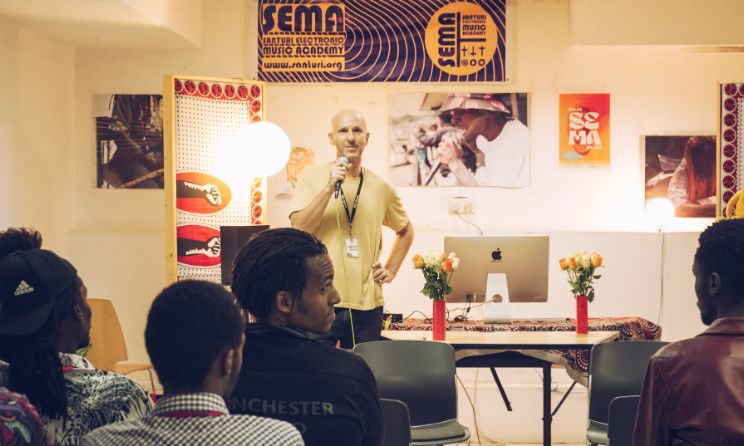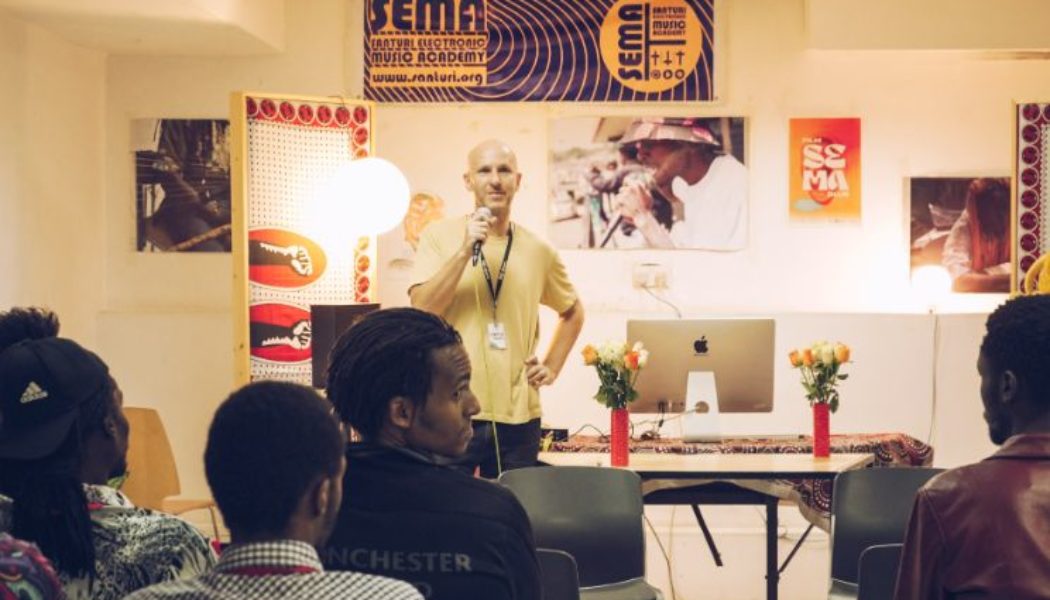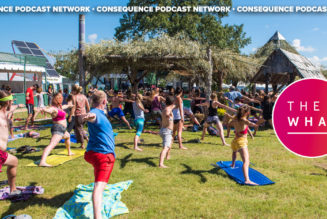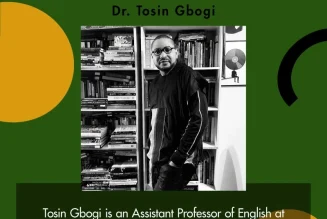
The seven-day symposium on music technology and innovation has brought together visionary East African music creatives and collectives, and is facilitating exchanges with thought leaders as well as global music technology companies and platforms. It explores the synergy between music, technology and innovation, blending workshops, concerts, live performances, networking opportunities and presentations.
On the sidelines of Kilele summit in Nairobi, Music In Africa caught up with David Tinning, the man who has overseen the remarkable development of Santuri East Africa.
MUSIC IN AFRICA: What informed the formation of Kilele?
DAVID TINNING: Before Santuri marked 10 years, we’d been thinking about different things that needed to happen. We felt this was the perfect time to look back at the changes that have happened since our arrival within the music scene and particularly the alternative music scene and the electronic space. We not only want to celebrate but also highlight the trends affecting East African creatives working in the electronic and music tech space. We have built a really wide network of partners at all levels over the years, like the many music tech platforms that have been very supportive, and we have always felt like we are the intermediary and would want those companies to come to meet their users and the communities make music with their tools. We thought a platform with the loudest interactions between artists and music technologists would be beneficial in growing this scene further. Kilele also intersects with academia and everything that is happening around AI, and how that affects music. We felt this was the perfect time to gather experts, collectives, companies and artists to discuss what is happening.
Why did you decide on a one-week format?
Originally we had talked of a two- or three-day format and when we put out a call for proposals, we got so much interest. Many amazing proposals were submitted and organisations also contacted us asking if they could be a part of this and we had to reconsider. People had to travel to Nairobi from all over the world and we thought we could take more time to have meaningful conversations, showcase more and network more.
How many guest speakers did you invite?
We’ve had panels composed of about 50 people coming from some 15 different countries. It has been an exciting one, since they are real experts in their fields. The quality of the discussions has been very high and illuminating, and I personally feel they have made me learn and understand many topics. It is my expectation that every participant felt the same way.
Looking back at 10 years of Santuri, what would you say has been the biggest challenge?
The biggest challenge has been maintaining funding; doing this dance between project funding and trying to build up revenue sources so that we can have a solid base without scaling our projects up or down depending on the availability of funds. Our reliance on project and institutional funding sometimes inhibits us. We’re trying to find a way to generate revenue and stay true to our goal to assist people with limited means. We can’t just do classes for the middle class.
And what has been the most amazing thing?
The most amazing thing is the community – about 300 or 400 individuals who have given up their time and trusted Santuri to start their collectives and projects, and built their own careers. We feel like we serve the needs of the communities. We are really open and transparent with the way we operate, that has really reflected well with how people get involved. I think Kilele is a perfect example of that, we have so many volunteers who want to be a part of it. Things like the International Music Council Rights Award we won last year help at high levels when we talk to the donors and partners, but I think building trust with the community over 10 years is the true measure of what we have done.
Do you expect Kilele to take place annually?
Yes, we have already started thinking about 2025 but everything is not completely optimal at the moment. We are writing plans and thinking about how we will upgrade the event and what we can revisit in 2025. We plan for this to be an annual thing perhaps with smaller events during the week or during the year in different locations in East Africa and hopefully Europe. This is aimed at trying to bring people with an interest in music technology, music companies and festivals together in the lead-up to the main event next February.
Learn more about Kilele summit here.









